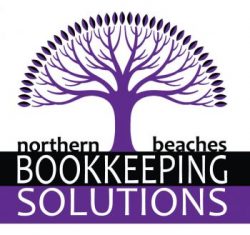Oct
17
Running a business involves managing finances, and while many people use the terms bookkeeper and accountant interchangeably, they actually perform distinct roles. Understanding the differences between a bookkeeper and an accountant can help you make better financial decisions and determine which service your business needs — or whether you need both.
What Does a Bookkeeper Do?
A bookkeeper is responsible for handling the day-to-day financial transactions of a business. Their duties include:
1. Recording Financial Transactions:
Bookkeepers record all income, expenses, and transactions in accounting software such as Xero, QuickBooks, or MYOB. This includes purchases, sales, payments, and receipts.
2. Managing Accounts Receivable and Payable:
They keep track of money owed to the business (accounts receivable) and money the business owes to others (accounts payable). This includes invoicing, tracking payments, and following up on overdue accounts.
3. Reconciliation of Bank Statements:
Bookkeepers regularly compare the business’s financial records against bank statements to ensure accuracy and identify discrepancies.
4. Processing Payroll:
Bookkeepers calculate employee wages, withhold taxes, and distribute payments. They also maintain records of employee leave, superannuation, and other payroll obligations.
5. Data Entry and Record Keeping:
They input data into accounting systems, ensuring that every transaction is accurately recorded and categorised.
6. Generating Basic Financial Reports:
Bookkeepers produce reports such as profit and loss statements, balance sheets, and cash flow statements, providing a snapshot of the business’s financial health.
7. Preparing for Tax Time:
While bookkeepers don’t usually file taxes, they ensure that all financial data is well-organised, making it easier for accountants to complete tax returns.
What Does an Accountant Do?
Accountants provide a more strategic, analytical approach to financial management. They interpret the financial data recorded by bookkeepers to help business owners make informed decisions. Key responsibilities include:
1. Financial Analysis and Reporting:
Accountants analyse financial data to assess the business’s financial performance, identifying areas for improvement or cost savings.
2. Preparing Financial Statements:
They compile comprehensive financial statements, including profit and loss statements, balance sheets, and cash flow statements, which provide a detailed overview of the business’s financial status.
3. Tax Preparation and Filing:
Accountants handle the preparation and lodgement of tax returns, ensuring compliance with tax laws and identifying potential deductions and credits.
4. Budgeting and Forecasting:
Accountants develop financial forecasts and budgets to help businesses plan for future expenses, investments, and cash flow management.
5. Tax Planning and Advisory:
They advise on tax strategies to minimise liabilities and ensure the business meets its tax obligations.
6. Auditing and Assurance Services:
Accountants conduct audits to verify the accuracy of financial records and assess internal financial controls.
7. Business Strategy and Consulting:
They provide strategic advice on business growth, cost reduction, and financial planning based on financial data and market trends.
Key Differences Between a Bookkeeper and an Accountant:
Bookkeepers focus on recording daily transactions, ensuring data accuracy, and maintaining financial records. Accountants take a broader view, analysing financial data, preparing financial statements, and providing strategic financial guidance. Both roles are essential for maintaining financial stability and supporting business growth.
Do You Need a Bookkeeper or an Accountant?
Most small businesses benefit from having both a bookkeeper and an accountant. If your business is small or just starting out, a bookkeeper can keep your financial records organised and up-to-date. As your business grows, an accountant can provide valuable insights into cash flow management, tax strategies, and financial planning.
Whether you need day-to-day record keeping or in-depth financial analysis, understanding the distinct roles of bookkeepers and accountants will help you make informed financial decisions and keep your business on track for long-term success.

